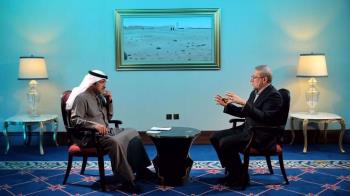Alwaght- Yemeni sources report heavy fighting in Abyan province (East of Aden) between militants loyal to Abd Rabbu Mansour Hadi and militias affiliated with the Southern Transitional Council (STC), which has been described as the deadliest conflict since the Riyadh agreement was signed last November.
The renewed military conflict coincided with the return of resigned President Abd Rabbu Mansour Hadi, who had apparently traveled to the US for medical treatment. The developments re-assured this hypothesis that the pro-Qatari current in Hadi's government wanted to discourage him from making any changes to the cabinet structure, as such changes could undermine the influence of this powerful current.
While talks are underway to form a new government in Riyadh, the capital of Saudi Arabia, the escalation of military clashes in Abyan, can be seen as a sign of the failure of foreign efforts to maintain unity in the southern camp. However, this gap is widening day by day with the emergence of differences between Al-Islah Party and Hadi in person. Meanwhile, Ansarullah and popular committees have opened a new front in Ad Dali province, increasing military pressure on Mansour Hadi's forces.
Yemeni political scholar Mahmoud Al Taher described the clash between Yemeni government forces in Abyan and STC-affiliated forces as a sign that the South is reverting to its previous decision to suspend its coalition government with Mansour Hadi.
Southerners believe that consultations on the implementation of the Riyadh Agreement are being held in order to pave the way for military action against them and to reduce the areas under the control of the Southern Transitional Council (STC) in order to force the current to accept the outcome of the negotiations. Subsequently, this will reduce the STC's stake in the new government and the political benefits of the agreement.
In this situation, due to the various differences that exist in the consultations for the distribution of ministerial shares and also considering the opposing positions of the Al-Islah party, the possibility of reaching a consensus on the next government in accordance with the timetable specified in the mechanism for accelerating the implementation of the Riyadh Agreement will not be possible. In fact, it can be said that given the pessimistic view of the Riyadh agreement and Saudi plans, as well as the differences between the UAE and Saudi Arabia as the main parties supporting the agreement, there is clear coordination to defeat the Riyadh negotiations through a strategy of keeping the military situation unstable in order to delay the implementation of the agreement.
On the other hand, the unwillingness of Aden's political and military leaders to abandon the commercial and financial interests they derive from continuing the war should not be overlooked. Thus, it can be said that in addition to the opposition of the southerners, two powerful currents in Hadi’s government likewise do not want the Riyadh agreement to be achieved. The first, as mentioned, are the Muslim Brotherhood Party who are in line with the plans of Qatar and Turkey, which are aware of Hadi's efforts to reduce the power of Al-Islah Party in the cabinet, and the second, Mansour Hadi's associates, who are assessing the course of developments in Yemen thru the rise of the South, and the behind-the-scenes agreements between Riyadh and Abu Dhabi in the Riyadh Agreement, as well as the ceasefire negotiations between Riyadh and Sanaa, resulting in them becoming marginalized.
In these circumstances, it can be expected that as the war continues to expand and the Riyadh agreement falls, the military situation will get out of the control of Saudi Arabia more than ever before. The continuation of this situation can strengthen the influence of other regional countries, including Turkey and Qatar, using ideological influence and the relocation of their agents into Yemeni state institutions.
In addition to Turkey's increasing dissenting comments against Saudi Arabia and the UAE on Yemen in recent months, some Yemeni sources have raised rumors that armed groups affiliated with the Muslim Brotherhood in Abyan have used drones that have been recently developed by Turkey.
The source has said, since last May, Turkish officers in Shabwa province have been training armed forces with Qatar's budget under the supervision of Yemen's Transport Minister Saleh al-Jubwani on how to navigate drones.
In this regard, media close to Saudi Arabia have reported the acquisition of a recording of Abdou Farhan al-Mikhlafi, known as Salem, the military leader of the Muslim Brotherhood in Taiz that contains statements regarding Turkey's promises in providing weapons and vehicles for the People's Mobilization Forces and the Brotherhood-led army forces.



























